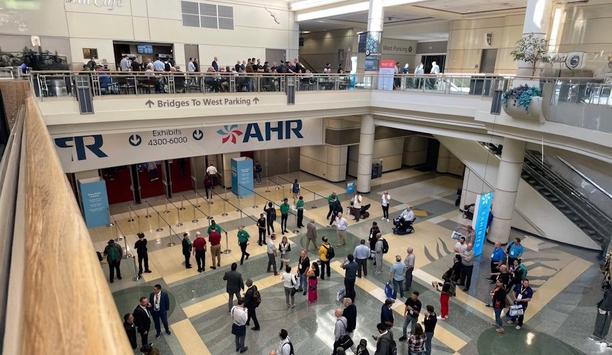How Does Digitalization Enable Evolving HVAC Technologies?
Editor Introduction
Digitalization is the integration of digital technologies into everyday life. In the context of HVAC, digitalization refers to the use of digital technologies to improve the efficiency, performance, and control of heating, ventilation, and air conditioning systems. Considering that digitalization is a major trend relating to HVAC, we asked our Expert Panel Roundtable: How does the digitalization of HVAC enable adaptation to evolving technologies and newer applications?
The HVAC industry is in a growth phase. The increased focus on reducing energy consumption and carbon emissions will continue as it moves towards new technologies to help achieve these goals. The demand for new sustainable homes with integrated system controls is driving these advancements in the industry and will continue to drive change for many years. Technology is utilizing software and smart sensors to provide automation options for internal and exterior controls, including temperature, humidity, and sun position monitoring to ensure HVAC units operate at peak efficiency. As these systems become more advanced, there is a need for increased protection against environmental elements for the unit and its components and for regular maintenance checks to ensure the unit is operating at peak efficiency.
Digital transformation can drive operational savings and revenue for many HVAC firms. In residential HVAC in particular, the job is challenging – many processes are detailed and time-consuming. New technology represents an opportunity to support and augment the work of incredible teams across the country. In the sales process, in particular, new load calculation and sales software coming onto the market helps ensure the delivery of personalized, adaptive solutions for homeowners. New software embedding LiDAR imaging enables contractors to rapidly build out 2D floorplans, 3D models, and load calculations, while simply walking through and scanning a home. With simplified technology, contractors can rapidly lay out multiple different solutions that drive comfort in the home and stand out on-site with their expertise.
Digitalization of HVAC presents the opportunity to transform the user experience and significantly enhance the value provided, which becomes increasingly relevant as heating systems switch from gas to electricity. HVAC systems are increasingly co-located with other energy assets, such as solar photovoltaic (PV) and battery storage. To get the best value from such systems, they need to be able to understand the actions each asset is performing and adapt their service accordingly. This enables the building to be heated or cooled when local power generation is available, either directly, or from a battery store. Connected systems then also can optimize against other external parameters, such as weather forecasts, power prices, and demand side response signals from the power networks. At Passiv we have produced a domestic HVAC system that performs all these tasks and leverages the capabilities of AI to learn the thermal properties of the building to deliver a great comfort outcome at the lowest possible cost.
Digitalization is essential to the adaption of evolving tech and new applications. This is because it allows for better space comfort control, giving us insight into which parts of the building are occupied at any given moment. Furthermore, it also allows for more efficient energy use. For example, adaptive HVAC systems can be integrated to adjust based on weather forecasts – to change output reflecting predictive building thermal behavior. Digitalization allows for higher reliability and better and more cost-effective HVAC maintenance strategies as those evolve from preventive to predictive ones, so the systems and components can be timely serviced for an extended lifetime rather than replaced.
Editor Summary
Digitalization is expanding the capabilities of HVAC systems by providing new levels of data about a given environment and new levels of control. Digitalization works hand-in-glove with the vast array of new and emerging technologies driving modern HVAC performance. Increasingly, digitalization is a core component of HVAC systems.
- Related companies
- Modine Manufacturing Co.
- ABB Group
- Conduit Tech
- Passiv
- View all news from
- Modine Manufacturing Co.
- ABB Group
- Conduit Tech
- Passiv
Expert Commentary
Leveraging Radiant And Hydronics To Help Achieve Decarbonization Goals
DownloadSealed Connectors In Harsh Environments
DownloadPowering And Cooling Next Generation Data Centers
DownloadDebunking Myths To Promote A Bright Future For Heat Pumps
DownloadOptimizing Comfort: The Ultimate HVAC Component Guide
Download














